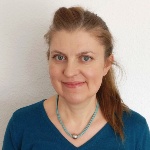Project: The fine structure of the Russian noun phrase: A comparative perspective DFG-funded research grant: GE 2136/3-1
- DFG project number
- Principal investigator
- Funding
-
since July 2021
Renate Belentschikow (University of Magdeburg) – consultant on word formation in Russian
Walter Bisang (University of Mainz) – consultant on Chinese classifiers
Ellen Brandner & Alex Pfaff (Universität Stuttgart) – DFG Project Partition and individuation in Germanic
Thomas Daiber (University of Gießen) – Slavic diachronic linguistics consultant
Hana Filip (University of Duesseldorf) – consultants on formal semantics of countability
Scott Grimm (University of Rochester) – consultant on countability classes
Daniel Hole (University of Stuttgart) – consultant on German and Chinese linguistics, generative syntax and formal semantics
Eugen Hill (University of Cologne) – consultant on historical morphology of Indo-Germanic
Gianina Iordăchioaia (University of Stuttgart) – consultant on theories of word formation
Olga Kagan & David Erschler (Ben-Gurion University of the Negev, Israel)
Ekaterina Lyutikova (Moscow State University) and Natalia Serdobolskaya (Russian Academy of Sciences) – Russian consultants, mediators of participants for the questionnaire
Radek Šimík (Charles University, Prague) – consultant on semantics of DPs in Slavic
Judith Tonhauser (University of Stuttgart) – consultant on formal semantics
Ludmila Veselovská (Palacky University, Olomouc) – consultant on the DP-structure in Slavic
Björn Wiemer (University of Mainz) – consultant on grammaticalization in Slavic languages
Marcin Wągiel & Mojmír Dočekal (University of Brno) – consultants on countability in Slavic
Niina Ning Zhang (Chung Cheng University, Taiwan) – consultant on Chinese classifiers
The main goal of the project is to investigate the nominal categories responsible for the classification and countability of nouns in order to provide a basis for a new refined theory of the low domain of the DP structure. The specific goal is to develop a proposal for the fine-grained structure of the DP in Russian which can also account for differences to German and to Chinese.
Since the formulation of the DP-hypothesis in the 90s and the introduction of D as a functional category for determiners, various functional projections below D have been added to integrate nominal categories such as gender and number but also to account for classifiers in classifier languages. However, the research of the past 20 years reveals a spectacular variation in countability types and types of nominal classification, as well as differences in the expression of definiteness between languages with an overt D and languages for which a covert D has been proposed. This suggests that some fine-tuning or even more radical modifications of the DP structure are necessary.
In order to provide an empirical basis for the refinement of DP-structure we will investigate nominal categories of the lower DP-domains responsible for classification and countability of nouns in Russian, a morphologically rich language. Although Russian has no articles and hence is impoverished in the higher domain of the DP, it has a very differentiated lower domain. An examination of the lower DP-domain in this language is particularly illuminating since many categories in Russian are given morphological expression that in other language are only contextually available and are often difficult to pin down or to distinguish from other categories. It is well known that besides being specified for gender and declensional class, nouns in Russian are specified for animacy and have an elaborate expressive morphology. A new observation which will be further investigated in the project is that beside the count and mass class Russian grammatically recognizes an additional collective/singulative class. Moreover, a look at diachrony reveals a similarity of Russian and other Slavic languages to classifier languages. It can be shown that some suffixes for declensional class specification in present-day Russian are residues of former semantically transparent classifiers.
Russian will be compared to German as a language with an article and to Chinese as a classifier language. This comparison will contribute not only to the typology of countability and noun classification but also to the theoretical debate about the universality of functional categories. I will discuss the adequacy of different syntactic approaches to language variation such as the Cartographic Approach, the Universal Spine Model and the theory of Principles and Parameters for capturing language variation in the structure of noun phrases.
Ljudmila Geist (2022): Count/mass flexibility of nouns: The case of Russian. Formal Description of Slavic Languages, Humboldt University of Berlin, October 6, 2022.
Ljudmila Geist (2022): Definiteness without determiners in German. Forschungskolloqium Stuttgart, July 13, 2022.
Ljudmila Geist (2021): The diminutive suffix -k-in Russian and individuation: an empirical investigation. Workshop Dissecting Morphological Theory: Diminutivization, 46th Austrian Linguistics Conference (ÖLT), Vienna, December 11-12, 2021.
Ljudmila Geist (2021): Distributed plural hypothesis in Polish and Russian. Memorial workshop in the honor of Janna Błaszczak, Wrocław, December 11, 2021.
Kagan, Olga, Ljudmila Geist, David Erschler: Singulativity, the Mass-Count Distinction, and the Russian Suffix -in. Formal Approaches to Slavic Languages (FASL) 30, Massachusetts Institute of Technology (MIT), May 13-16, 2021.
Geist, Ljudmila (2021): Definiteness without determiners in German. Glossa: a journal of general linguistics 6(1): 114, p.1-30. Open access doi: https://doi.org/10.16995/glossa.5708
Geist, Ljudmila (2021): New issues in the semantics of noun phrases in Slavic languages. In: Blümel, A. / J. Gajić / L. Geist / U. Junghanns / H. Pitsch (eds.): Advances in formal Slavic linguistics 2018. Berlin: Language Science Press. Open access: https://langsci-press.org/catalog/book/280
In preparation:
Geist Ljudmila & Joanna Błaszczak (eingereicht): Distributed Plural hypothesis in Russian and Polish. In: Jędrzejowski Łukasz, Carla Umbach, Kerstin Schwabe (Hrgs.) Syntax, Semantics, and Lexicon. Papers by and in Honor of Ilse Zimmermann. Berlin: Language Science Press (Open Slavic Linguistics)
Geist, Ljudmila; Olga Kagan, David Erschler (eingreicht) Mass-Count Distinction and the Russian Singulative Suffix -in-.
Contact

Ljudmila Geist
Priv.-Doz. Dr.Principle investigator (Project on Noun Phrases), Teaching Associate

